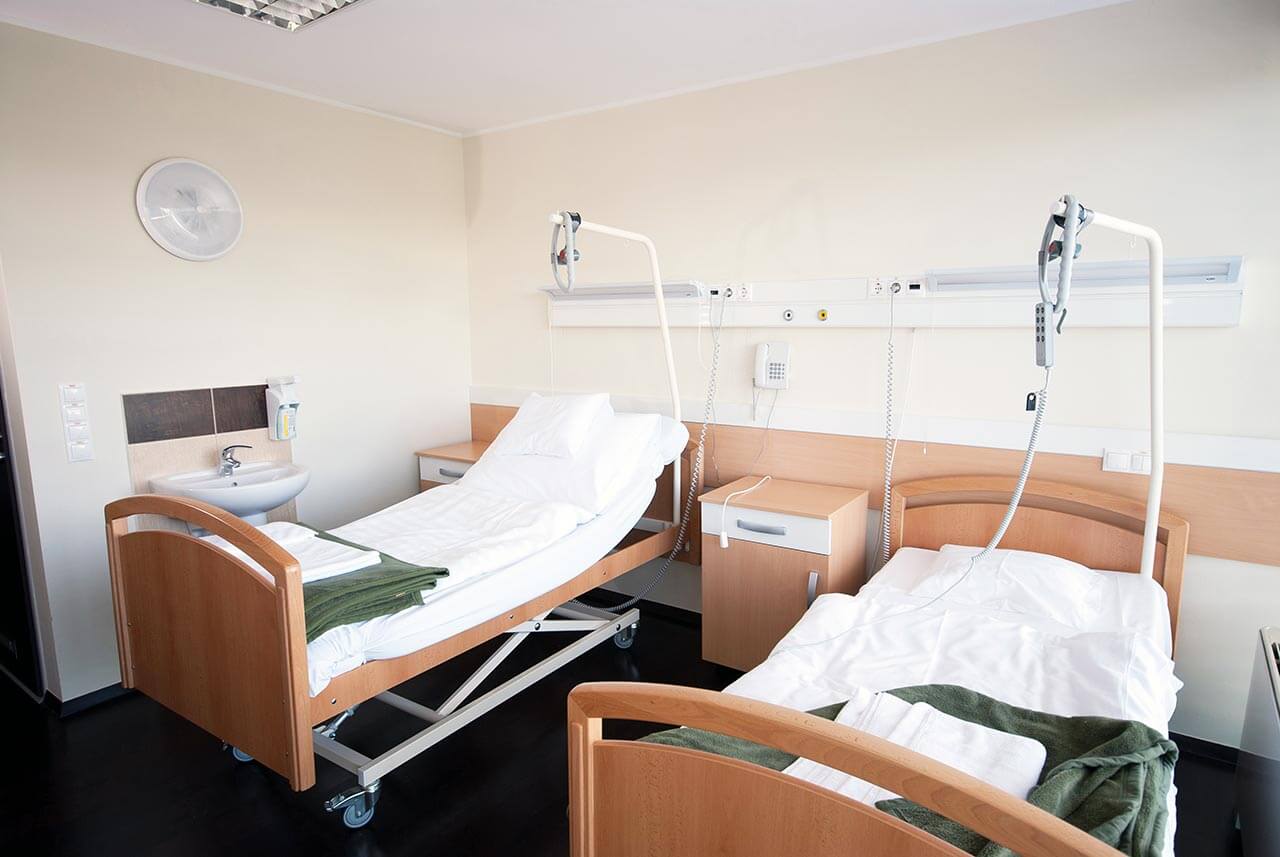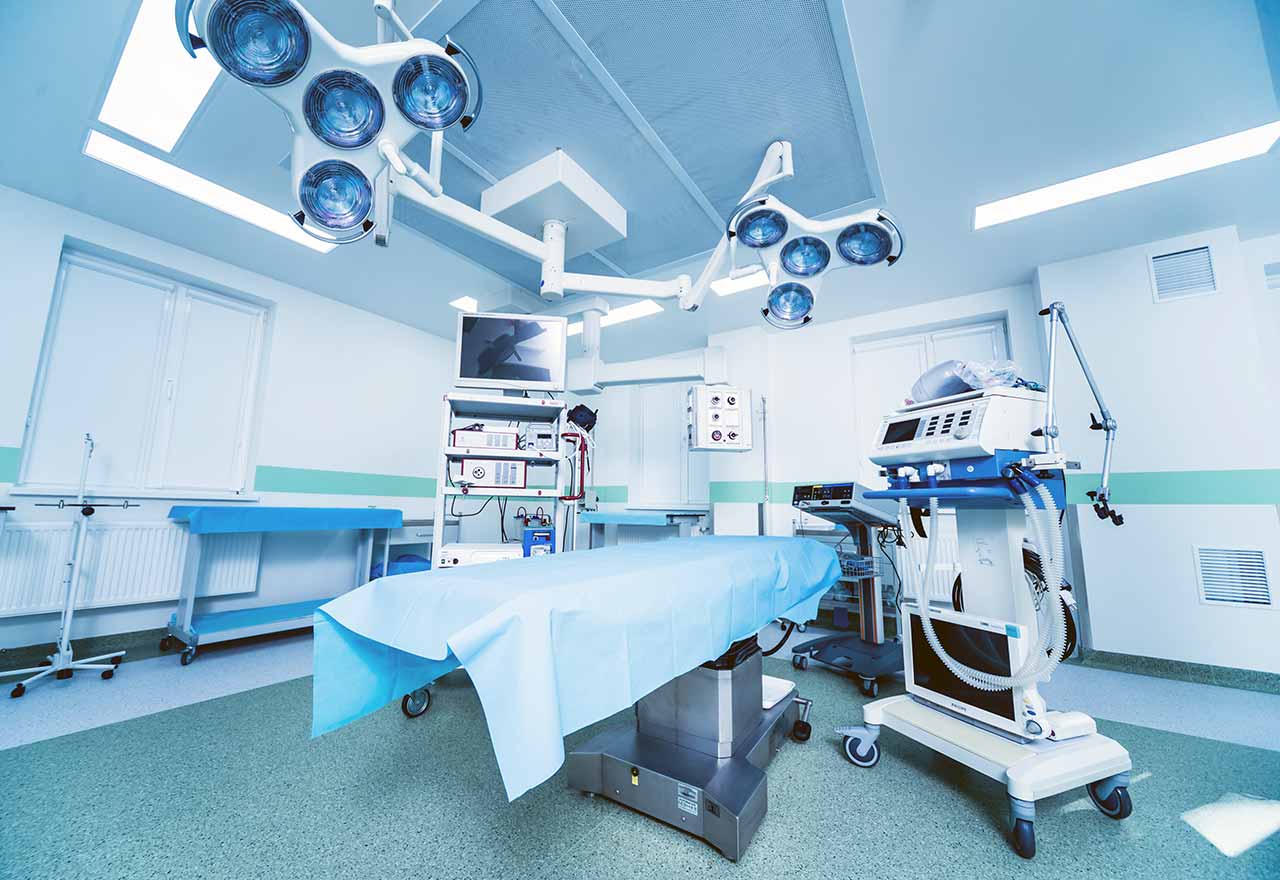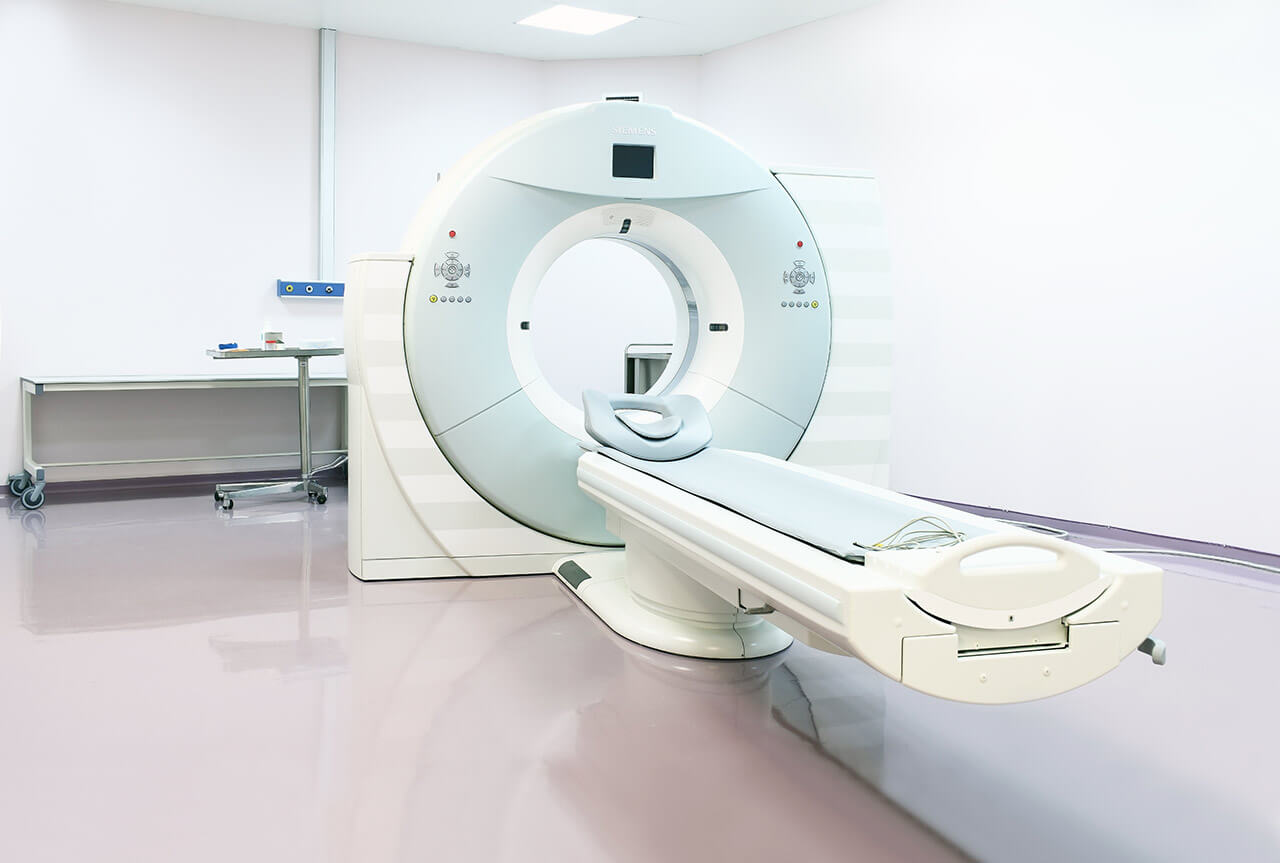
About the Department of Interventional Radiology at HELIOS University Hospital Wuppertal
The Department of Interventional Radiology at the HELIOS University Hospital Wuppertal specializes in the full range of minimally invasive image-guided interventions for diagnostic and therapeutic purposes. Diagnostic interventional procedures allow obtaining tissue samples for further laboratory tests. Most minimally invasive interventional procedures are performed for the treatment of vascular obstruction or stenosis, as well as for tumor destruction. The surgeon inserts special catheters and/or probes through small skin punctures. All surgical procedures are performed under image guidance – X-ray, digital subtraction angiography, ultrasound, CT, MRI. The specialist can clearly see all the anatomical structures and a pathological focus, thanks to which he accurately controls the delivery of the catheter to the required site and all subsequent manipulations. It is worth noting that the department was awarded the quality certificate of the German Society for Interventional Radiology (DeGIR) in 2018, which guarantees effective treatment in accordance with modern medical standards. The department's doctors have the necessary skills and qualifications, which allow them to select the best treatment option for each patient and ensure its successful conduction. The department is headed by Prof. Dr. med. Patrick Haage.
Upon admission to the department, the patient receives a medical consultation, during which the specialist studies his medical history and appoints the necessary imaging diagnostic tests (X-ray, ultrasound, CT, MRI, angiography) to assess the advisability of an interventional therapeutic procedure. Should indications for the intervention be confirmed, the next step will be treatment planning. The procedure is carried out in a special operating room, the patient is on the operating table with large screens to visualize the surgical field. The surgeon inserts the catheter and/or probe through several skin punctures without making extensive incisions. The advantage for the patient is the fact that the interventional procedures are usually performed under local anesthesia.
Most of the department's patients undergo treatment of vascular obstruction or stenosis. Prior to the intervention, angiography and other necessary imaging tests are performed to determine the exact location of the obstruction. After the injection of local anesthetic, the surgeon makes several skin punctures, through which a balloon catheter is inserted into the bloodstream. The specialist delivers the device to the pathological focus, while controlling its movement along a vein or artery using images on a large screen at multiple zoom. When the balloon catheter reaches the area of obstruction or narrowing of the vessel, it expands its lumen, thereby restoring normal blood flow. With severe types of stenosis and obstruction, during the same interventional procedure, stent implantation into the vessel is additionally performed – the placement of a special metal frame to strengthen the vessel walls and prevent recurrent obstruction.
The team of the department's doctors often admits patients suffering from cancers. Of particular interest is chemoembolization for primary liver tumors and liver metastases caused by kidney, pancreatic, breast, colorectal cancer and other types of oncology. Chemoembolization is a local chemotherapy. It involves inserting a catheter through the femoral artery puncture. Under the guidance of angiography, the catheter is directed to the artery supplying the tumor, and the surgeon inserts embolization microspheres into the pathological focus, which block the blood flow to the malignant tumor. The microspheres also contain a high concentration of chemotherapy agent, the gradual release of which destroys the tumor. The department also performs an innovative radioembolization procedure, the essence of which is similar to chemoembolization. The only difference is that the destruction of cancer cells occurs due to the administration of radioactive microspheres, but not microspheres with chemotherapy agents.
The department's specialists are deservedly proud of their successful experience in radiofrequency ablation for the treatment of lung metastases. The essence of the procedure is in the exposure of high-energy radio waves to the metastases. During the procedure, pathological tissues are heated to high temperatures (about 90°C), due to which they are destroyed. Radiofrequency ablation is performed under general anesthesia and with the use of CT guidance. The access to the lungs is provided by puncturing the skin and soft tissues in the thorax, through which a special needle is inserted. With appropriate clinical indications, the department's specialists perform cryoablation – a similar procedure, during which metastases are destroyed by cold. Both procedures are used to remove single metastases in the lungs and are an excellent modern alternative to classic open surgery, which requires thoracotomy.
The department specializes in such minimally invasive interventional procedures:
- Diagnostics
- Assessment of the patency of arterial and venous vessels in all parts of the body
- Biopsy: needle biopsy and fine needle aspiration biopsy
- Treatment
- Minimally invasive treatment of vascular pathologies
- Minimally invasive treatment of peripheral arterial occlusive disease: lysis therapy, percutaneous transluminal angioplasty, stent implantation and thrombectomy
- Minimally invasive closure of bleeding foci and correction of vascular malformations
- Implantation of cava filters at high risk of pulmonary embolism
- Minimally invasive treatment of oncological diseases
- Treatment of malignant tumors of the liver and other organs: chemoembolization, catheter embolization and Yttrium-90 radioembolization
- Ablation procedures for the treatment of lung metastases: radiofrequency ablation, cryoablation and laser therapy
- Minimally invasive treatment of vascular pathologies
- Other medical services
Curriculum vitae
Higher Education and Postgraduate Training
- 2001 - 2003 Master of Business Administration (MBA), School of Business and Economics, Maastricht University.
- 1988 - 1994 Study of Human Medicine at the University of Duesseldorf.
Professional Career
- Since June 2019 Medical Director of the HELIOS University Hospital Wuppertal.
- Since January 2006 Head Physician of the Department of Interventional Radiology at the HELIOS University Hospital Wuppertal.
- January 2010 - December 2018 Member of the Medical Advisory Board of the Helios Clinics Group.
- January 2008 - December 2014 Medical Director of the St. Josefs-Hospital Bochum-Linden.
- Since May 2014 Head of the Department of Clinical Radiology at the Witten-Herdecke University.
- Since September 2015 Coordinator of the Educational Program of the Cardiovascular and Interventional Radiological Society of Europe (CIRSE).
- 2002 - 2005 Assistant Professor at the RWTH Aachen University.
Memberships in Professional Societies
- Radiology Imaging Community.
- Vascular Access Society of the Americas.
- Society of Interventional Radiology.
Photo of the doctor: (c) Helios Universitätsklinikum Wuppertal




